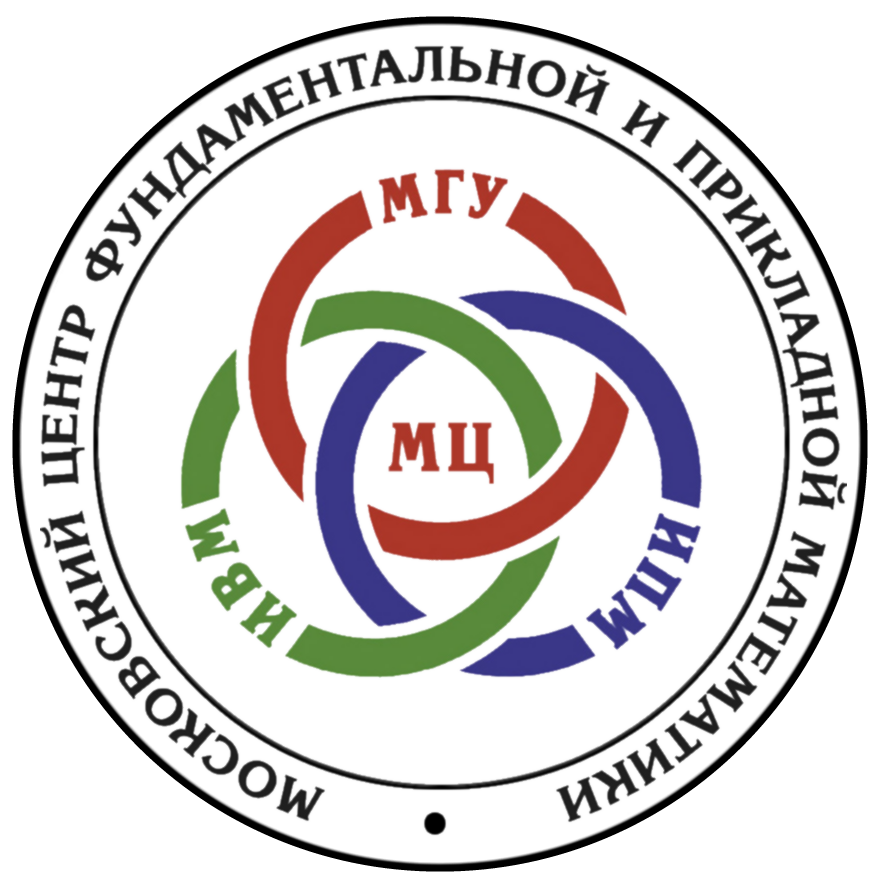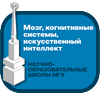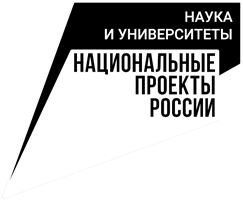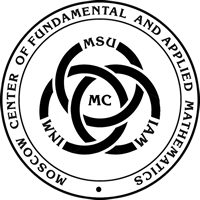52nd meeting of the seminar
«Supercomputer simulation of the Earth system»
The seminar is devoted to various aspects of the application of supercomputer modeling methods for solving weather and climate forecasting problems.
Seminar co-organized organizations
 |
Lomonosov Moscow State University (MSU) |
 |
Federal Service for Hydrometeorology and Environmental Monitoring of Russia |
 |
Russian Academy of Sciences |
Supported by
 |
Moscow Center of Fundamental and Applied Mathematics |
 |
Interdisciplinary Scientific and Educational School of Moscow State University «Brain, Cognitive Systems, Artificial Intelligence» |
Seminar Leader:
 |
V.A. Sadovnichy academician, rector of Lomonosov Moscow State University |
Co-leaders of the seminar:
 |
R.M. Wilfand Doctor of Technical Sciences, Scientific Director of the Hydrometeorological Center of Russia |
 |
S.A. Dobrolubov Corr. RAS, Dean of the Faculty of Geography, Lomonosov Moscow State University |
 |
N.G. Yakovlev Doctor of Physics and Mathematics, Leading Researcher, Institute of Numerical Mathematics, RAS |
 |
V.M. Stepanenko Doctor of Physics and Mathematics, Deputy Director of RCC MSU |
Scientific Secretary of the seminar:
 |
M.I. Varentsov Ph.D., senior researcher of RCC MSU |
Seminar topics cover the following main areas (but not limited to them):
- Methods and technologies for using supercomputer computing in interdisciplinary problems of environmental sciences.
- Mathematical modeling of processes in the climate system.
- Application of supercomputer technologies to solve problems of weather forecasting.
- Application of supercomputer technologies to solve problems of assessing climate change and their consequences for the environment.
- Application of supercomputer technologies for the complex solution of problems of environmental protection, including natural hazards and man-made disasters.
PROGRAM
17:30 (GMT+3)
| M.A. Krinitsky | Head of the Laboratory of Machine Learning in Earth Sciences, MIPT Shirshov Institute of Oceanography RAS |
Machine Learning Methods in Geophysics: Current Opportunities, Challenges and Trends
Research and modeling of geophysical processes in recent times increasingly involves the use of machine learning or deep learning methods. The possibilities provided by modern complex statistical models are exploited in the tasks of field measurements and observations, desktop processing of field data, interpretation of remote sensing data. In remote sensing data identification and construction of trajectories of individual phenomena is carried out. In geophysical modeling data, it is possible to search for implicit and nonlinear regularities that are described by linear models with insufficient accuracy. In addition, machine learning methods are actively used for modeling individual geophysical processes or approximating individual physical quantities, solving statistical forecasting problems on different time scales. The tasks of statistical scaling and correction of geophysical fields deserve special attention, for which a number of approaches using machine learning methods have been developed in the last few years.
At the same time, the range of geophysical problems in which machine learning methods can be applied is not limited only to problems with known results (so-called supervised learning problems). In some cases, unsupervised learning approaches allow to extract new knowledge from already available data of monitoring observations or hydrodynamic modeling. In this case, methods of clustering, approximation of data distributions, dimensionality reduction, etc. are used. In some cases, artificial neural network models are used in niche but very promising problems of identification of partial differential equations, modeling of internal variables of complex systems.
Despite the successes of the statistical approach using complex models in geophysical problems demonstrated in recent years, the issues of physical consistency of the results of such models arise more and more frequently. Various approaches are being developed both to stimulate consistency of the results of statistical models and to introduce strict constraints based on the physics of the described processes. Besides deviation from the known physics, there is also the problem of correct quality assessment, which is not solved in all problems of geophysics. In addition to these features characteristic of the application domain itself, there are also problems characteristic of the machine learning approach itself, such as unreliability, noisy and expensive partitioning, small amount of training data and others.
The paper will discuss the issues of the most substantial directions of modern research of machine learning approach in geophysical problems, which will be illustrated by case studies and examples from the current literature. The problems arising on the way of application of machine learning methods in natural sciences and the most promising directions of development will also be highlighted.
The meeting of the seminar will be held in a hybrid format. Please note the change of venue for the face-to-face part: it will be held in a large conference hall on the 3rd floor of the RCC MSU. You do not need a pass to get into RCC MSC, just tell the watch that you are going to the seminar. In parallel, a webinar will be organized on the Zoom platform.
Link to the conference:
https://us02web.zoom.us/j/85235560275?pwd=a1M3YW9mM2MxVVN5bGhkTExjckFwdz09
Meeting ID: 852 3556 0275
Passcode: 219344
To simplify our work during the seminar, please do the following: check in advance that Zoom works for you (in the Zoom application settings you can check the quality of the speakers and microphone) and enter your last name, first name in your profile settings and middle name in full (this can be done on your profile page (https://us02web.zoom.us/profile) - in this case, conference colleagues will see how to contact you.

